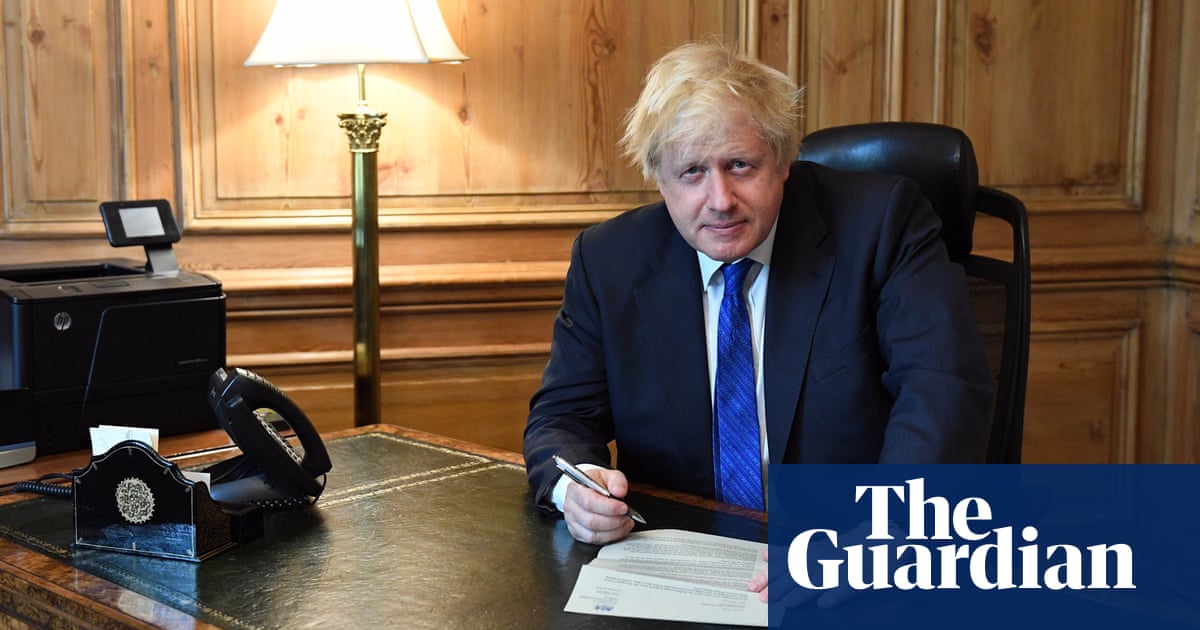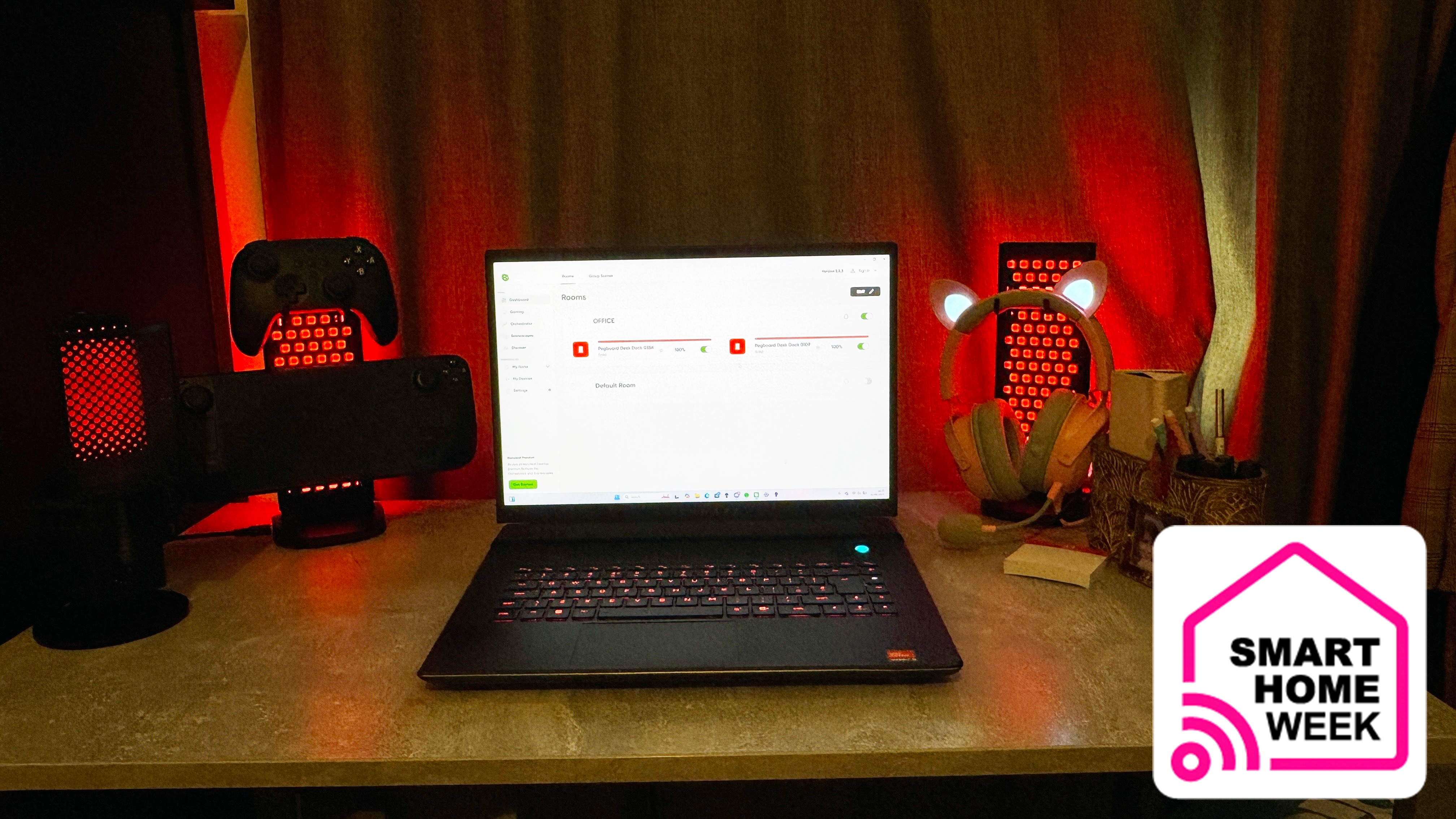Senior Conservative becomes third minister to walk out over common rulebook proposal

Boris Johnson has quit as foreign secretary, claiming in his resignation letter that the UK was headed for the status of a colony if Theresa Mays soft Brexit plans were adopted.
The leading Brexiter said that he tried to support the line agreed at Chequers on Friday but while the government now has a song to sing he could not manage to support the plan agreed.
The trouble is that I have practised the words over the weekend and find that they stick in the throat, Johnson wrote. Since I cannot in all conscience champion these proposals, I have sadly concluded that I must go.
Johnson was the third minister to quit in 24 hours following the Chequers deal, although his resignation was announced by Downing Street at 3pm before he had a chance to complete his letter.
He then chose to release his own resignation letter before Downing Street had a chance to reply, breaking the usual convention that a ministers resignation letter is released at the same time as the prime ministers response.
May hammered out a compromise with her deeply divided cabinet in an all-day meeting at Chequers on Friday but Johnson decided he could not promote the deal after consulting friends and allies.
Johnson wrote that he believed Mays new plan amounted to a semi-Brexit with large parts of the economy locked in the EU system, but with no UK control over that system.
Mays negotiating pitch to the European Union would see the UK agree to adopt a common rule book on standards for food and goods in return for achieving greater divergence on services and digital regulation, a proposal that has worried hardline Brexiters since it was leaked last week.
Pressure on the foreign secretary had been mounting since fellow pro-Brexiter David Davis resigned as Brexit secretary on Sunday night, swiftly followed by his No 2 at the Department for Exiting the EU, Steve Baker.
A Downing Street spokesman said: This afternoon, the prime minister accepted the resignation of Boris Johnson as foreign secretary. His replacement will be announced shortly. The prime minister thanks Boris for his work.
After the Chequers summit, it emerged that Johnson had referred to attempts to sell Mays Brexit plan as being akin to polishing a turd.
As the flamboyant public face of the Vote Leave campaign, his departure will deepen the sense of crisis around May and increase the chances that she could face a vote of no confidence.
One senior Brexiter suggested more resignations could follow if May sticks to her plan: Theyll keep going, one by one, until she either junks Chequers or goes.
Johnsons resignation was announced on Monday afternoon as Labour MPs were being briefed about the governments soft Brexit plan by Mays de facto deputy, David Lidington.
February 2016
Johnsonsays in a long-awaited statementthat ‘after a huge amount of heartache’ he will back the leave campaign. In January, David Cameron had announced ministers could campaign on either side, and despite being a backbencher, Johnson’s view was seen as influential.
May 2016
Johnson campaigns around the UK, posing with the now infamous bus saying leaving the EU would provide the NHS with an extra 350m a week aclaim later condemnedas a misuse of statistics.
23 June 2016
UK voters take part in the referendum. In the early hours of the following day the results show 52% voted to leave the EU. At a victory press conference hours later Johnson looks shaken.
30 June 2016
After Cameron quits, Johnsonannounces he will contestthe Conservative leadership, pitching himself as a unifier. In a surprise twist, Michael Govesays he will also stand, warning that Johnson cannot provide the leadership needed. Thisprompts Johnsonto use the launch of his leadership bid to say he will no longer stand.
13 July 2016
Theresa May, who took over the leadership unopposed, appoints Johnson as foreign secretary.
November 2017
Labour MPs call for Johnson to step down afterhe wrongly states thatNazanin Zaghari-Ratcliffe, who was jailed in Iran, was ‘teaching people journalism’ something both her family and her employer said was untrue, and was used by Iranian officials to justify her detention.
6 July 2018
Johnson is among 29 ministers who discuss Mays plan for Brexit at Chequers. Heagrees to her proposals, though it is later reported he had initial doubts.
9 July 2018
After vanishing for several hours,Johnson resigns.
Lidington, a potential candidate to succeed Johnson, emerged from the meeting in Westminster apparently unaware of the latest resignation.
Johnson was due to host a summit about the western Balkans on Monday afternoon but was instead holed up in his official residence with close advisers, considering his position.
He was ridiculed last month when he avoided a vote on a third runway at Heathrow, a proposal to which he had long-held objections. The trade minister, Greg Hands, resigned rather than obey the Conservative whip and vote for the airports expansion.
May appeared before a packed House of Commons minutes after news emerged of Johnsons resignation, cheered loudly by Tory MPs as she arrived. She acknowledged the resignations of Davis and Johnson at the beginning of her statement on Fridays Chequers agreement, briefly thanking Davis for steering through the most important legislation for generations and Johnson for showing passion in promoting global Britain to the world.
She did not elaborate on the turmoil engulfing her government, saying only that robust views had been exchanged around the cabinet table, as they have been around the breakfast table. She said she expected cabinet members to conform to collective responsibility now that a soft Brexit policy had been agreed.
Other ministers supporting hard Brexit took up their places on the frontbench, including Andrea Leadsom, Liam Fox and Penny Mordaunt. Michael Gove arrived late, unable to get a seat on the frontbench initially, before sitting on the benches reserved for cabinet members after Jeremy Corbyn had spoken. But there was no sign of either Johnson or Davis in the chamber.
Speaking after May, the Labour leader said there was a crisis in the government, accusing her of presiding over two years of soundbites, indecision and cabinet infighting, adding that more and more people [are] losing faith that this government is capable of delivering a good Brexit deal and that is just within her own cabinet.
Brussels reacted coolly to news of the cabinet departures. Donald Tusk, the president of the European council, said the departure of Johnson and Davis did nothing to solve the mess caused by Brexit.
He added in a tweet:
Donald Tusk (@eucopresident)
Politicians come and go but the problems they have created for people remain. I can only regret that the idea of #Brexit has not left with Davis and Johnson. But…who knows?
His comment reprised his previously stated hope that the UK might change its mind on leaving the EU.
Another EU diplomat said: The question is can [May] pull it through. The stability of the government is called in[to] question and now we will see what happens. But even if the government were to fall we have no other option to deal with this or the next government.
May was due to address her backbench MPs in Westminster after her Commons statement.
If 48 MPs write letters of no confidence to the chair of the backbench 1922 committee, Graham Brady, May will face a vote of no confidence.
Many of the prime ministers supporters believe she would win such a contest and cement her authority, but if she lost, May would face a leadership challenge, with Johnson among the potential candidates.
Asked whether May would contest a no confidence vote, a Downing Street source said simply: Yes. He added that the prime minister believed she had secured the backing of the cabinet at Chequers.
The Chequers agreement was the product and the subject of a formal meeting of the cabinet, and assent was recorded as part of that, in the way that cabinets do record these decisions. He refused to give further details. Asked whether May was confident that the rest of her cabinet backed the Chequers position, he added: There is no reason to think otherwise.
In Daviss resignation letter, he said he believed Mays proposal for a UK-EU free trade area governed by a common rulebook, hands control of large swathes of our economy to the EU and is certainly not returning control of our laws in any real sense.
Later on Monday, Davis expressed regret about Johnsons decision. He said he had resigned because he could not agree with the governments Brexit negotiating position, but added that Johnson did not need to do so. Id have to be the champion of the policy which I didnt believe in, so that doesnt work. Somebody else can do a better job than me under those circumstances. I dont think its central to the foreign secretary. Its a pity, but there we are, Davis told LBC radio.
Johnson and his allies are concerned about the risk that Britains ability to strike trade deals with non-EU countries will be severely limited under the Chequers approach. Brexiters have also been angered by what Baker told the BBC was childish briefing from No 10 over the treatment of pro-Brexit ministers at Chequers.
Read more: http://www.theguardian.com/us


